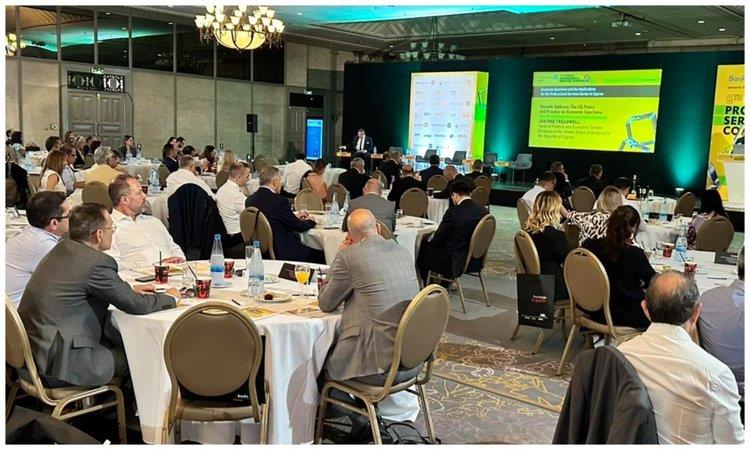Sanctions concern activities and not sectors of the economy, suggested Simon Squire, Head of Services Trade Sanctions at the UK Department for Business and Trade.
In his address at the 8th Cyprus Professional Services Conference presented by the Bank of Cyprus, Squire continued that the imposition of sanctions is carried out in order to deal with illegal activities within each industry.
Analysing the practices followed by the UK in connection to the war in Ukraine and economic sanctions, he said, firstly, that Russia depends on G7 countries for its economy, the majority of which have imposed sanctions, emphasising the impact they have on it. As he said, at least 74% of imports in service sectors are subject to sanctions and that it is often trade in critical goods.
He presented the sanctions imposed by the UK against Russia, clarifying that their purpose is not to affect the industries where they are applied but to the activities themselves. The sanctions are against the activities and not the sector," he said characteristically.
As for the future, the sanctions, he warned, are expected to also affect legal advisory services (this does not include legal representation).
On how sanctions affect the professional services sector, Squire made some useful suggestions and recommendations. The actions that service providers may need to take in order to comply with these sanctions should vary depending on the nature of the activities and transactions, he explained.
"If you are unsure whether your activities may be affected by these sanctions, we recommend that you seek independent legal advice and encourage you to consider whether your activity aligns with the overall objectives and spirit of the sanctions," Squire elaborated.
To minimise the risk, businesses can, he said, identify cases where there are links with both Russian and UK businesses, or with UK professionals working abroad, and take legal advice on the specific nature of those. of cases.
He also called on industry professionals to understand what UK exemptions and licenses apply and therefore certain activities are allowed to continue.
Finally, he emphasised the importance of understanding the differences between the regimes of the US, the EU, and the UK, while he praised the importance of close cooperation between the state and the private sector to address the issue.
(Source: InBusinessNews)









